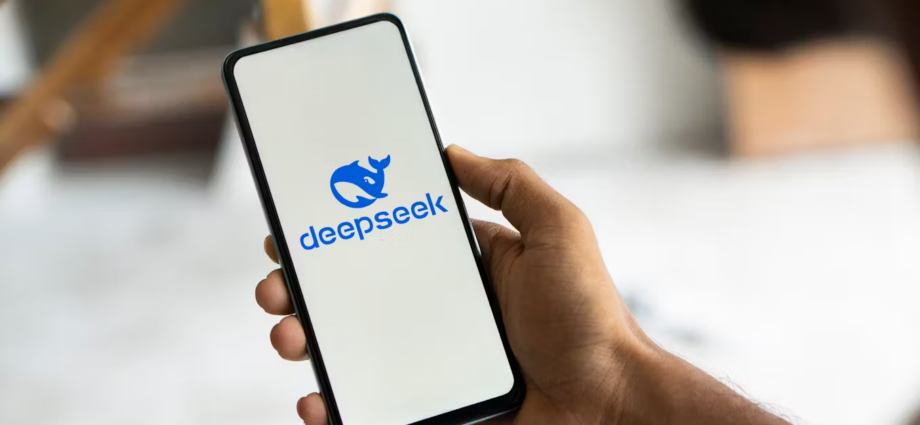
The emergence of the DeepSeek application is more than just a commercial success, it’s a geopolitical turning point. Canada must react.
by Renata Thiébaut. Originally published on Policy Options
February 24, 2025
(Version française disponible ici)
South Korea has joined the list of countries restricting the use of DeepSeek to protect data and maintain control over digital infrastructure. More and more governments are concerned about the risk this technology could pose to their national security and independence from foreign powers. How has this little-known Chinese startup provoked a veritable artificial intelligence Cold War?
The popularity of ChatGPT, the chatbot launched by U.S.-based OpenAI in early 2023, marked a turning point for Chinese technology companies, prompting them to accelerate the development of their own major language models. Shortly afterwards, Alibaba and Tencent launched their respective platforms, Tongyi Qianwen and Hunyuan, focusing on domestic market applications rather than international expansion.
DeepSeek, a previously little-known Chinese AI startup from Hangzhou, known as China’s Silicon Valley, launched its first open-source chatbot in 2023. The AI model was a project of renowned private equity giant High-Flyer quantitative hedge fund, built in just two months at a cost of less than US$6 million. After a series of updates, it made headlines in all the major media following the release of its latest version on January 20, 2025. The application reached 11.8 million visits in December 2024 in China, recording an impressive growth rate of 164 per cent before gaining an international spotlight.
When experts suggested that DeepSeek had outperformed ChatGPT, the U.S. stock market plummeted by almost US$1 trillion. Nvidia, the leading manufacturer of chips for generative AI, saw its market capitalization fall by US$600 billion. A newcomer to the generative AI sector, DeepSeek became the most downloaded application in the United States in just a few days at the end of January 2025.
Little is yet known about Liang Wenfeng, the co-founder of DeepSeek, and what it took for the company to surpass its famous competitors. DeepSeek’s popularity is more the result of geopolitical changes than advances in AI.
The geopolitical battlefield of AI
China’s dependence on foreign technologies, particularly when it comes to importing microchips, has seen a new chapter in 2019. The United States imposed strict controls on exports of semiconductors and AI-related technologies to China, citing national security concerns. In response, the Chinese government has accelerated domestic chip development.
Launched in 2008, the “Thousand Talents Program,” which aims to attract top-level researchers to work in China, has been instrumental in attracting international luminaries and returning Chinese, significantly boosting the nation’s AI capabilities. A study published in 2023 revealed that researchers participating in the youth component of the Thousand Talents Program ranked among the top 15 per cent in research productivity, largely thanks to better access to financial resources in China.
DeepSeek’s success reveals that the United States does not have the capacity to prevent China from catching up with American dominance in AI. The fear of it overtaking the U.S. is now real. As newly elected U.S. President Donald Trump has said, DeepSeek should be a “wake-up call” for U.S. tech companies.
DeepSeek under regulatory control
An avalanche of investigations awaits DeepSeek. The company has raised regulatory concerns due to data privacy and intellectual property infringement issues, compounded by national security risks.
The Italian data protection authority, the Garante, has opened an investigation into DeepSeek, demanding it disclose the data it has collected, stored and used. DeepSeek has been banned from certain Canadian government devices due to privacy concerns. The application is now reportedly blocked in Apple stores, and several lawsuits are in progress. Italy, Australia and Taiwan have already banned DeepSeek.
In the USA, OpenAI is accusing DeepSeek of intellectual property theft, claiming to have evidence that the Chinese company has used unauthorized techniques, such as “distillation,” to reproduce its AI models. Like TikTok, DeepSeek’s future remains uncertain.
The rise of AI in China and a divided global market
The emergence of DeepSeek is more than just a commercial success; it’s a geopolitical turning point. Despite efforts to limit China’s AI capabilities, the country is progressing at breakneck speed. Stanford University recently published the Global AI Vibrancy Tool, revealing that China already ranks second only to the USA in the 2023 global AI vitality rankings.
Although DeepSeek is making headlines, it’s not the only player in China’s AI race. Alibaba Cloud recently unveiled an improved version of its AI model, Qwen2.5-Max, claiming that it outperforms DeepSeek’s V3 model. The tech world is heading towards a future that separates AI ecosystems between China and the U.S.
The future of AI will not be determined by technology alone, but by geopolitics. China could face new sanctions and tariff increases imposed by the US across all sectors, ushering in a new phase of the trade war. China should turn to the BRICS+, now numbering some twenty member states and partners, to overcome the effects of the trade war.
Europe’s tumultuous relations with Trump over the possible annexation of Greenland reveal that the old continent cannot rely on its alliance with the U.S., and Canada can benefit from this. A rapprochement with China – and other highly innovative countries – should not be ruled out.
It’s time for a law on artificial intelligence
It’s time for a public-safety conversation about artificial intelligence
DeepSeek is a lesson for Canada. In the midst of a trade war with the United States, it must seek alternative markets and expand its co-operation with the European Union and China. Strategic co-operation in technology-driven industries can be achieved through joint R&D projects in priority areas such as pharmaceuticals, healthcare and energy.
Whether DeepSeek proves to be the tip of the iceberg in challenging American AI dominance, one thing is certain: the AI Cold War is here, and Canada can’t afford to stand idly by.
Subscribe to our newsletter.
This article first appeared on Policy Options and is republished here under a Creative Commons license.


